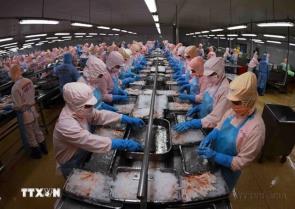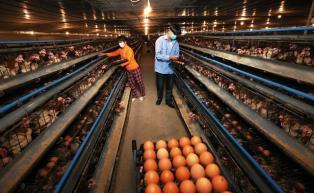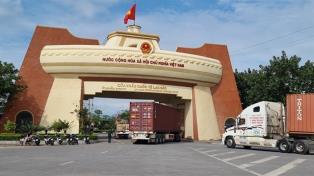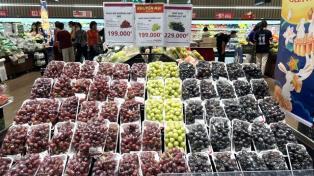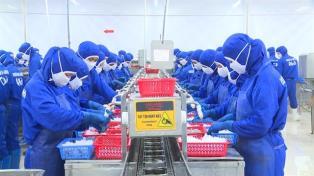Exports from Việt Nam to the EU have grown sharply, up 60 per cent since the Việt Nam - EU Free Trade Agreement took effect, adding US$20 billion in export value.

By Ly Ly Cao
HÀ NỘI — Five years after the Việt Nam - EU Free Trade Agreement (EVFTA) entered into force, both sides have hailed the deal as a success, while also acknowledging the need to tackle remaining barriers and move toward a more balanced trade relationship.
Việt Nam has become the European Union’s largest trading partner in ASEAN, with bilateral trade reaching nearly EUR64 billion. Trade in goods alone has risen by 47 per cent over the past five years, underscoring what European Commissioner for Trade and Economic Security Maros Sefcovic described as "a real success and a reflection of the strong dynamic between the EU and Việt Nam".
Exports from Việt Nam to the EU have grown sharply, up 60 per cent since the agreement took effect, adding US$20 billion in export value. By contrast, EU exports to Việt Nam increased by 10 per cent, equivalent to about $1 billion.
The imbalance has prompted both sides to intensify talks on how to create more reciprocal benefits.
"The truth is that Việt Nam is doing better than Europe right now", Sefcovic said at a press conference on September 26 after co-chairing the EVFTA committee with Vietnamese Minister of Industry and Trade Nguyễn Hồng Diên.
"Therefore, we have been discussing with Minister Diên how to achieve more balance in our mutual trade".
"We went through a list of very concrete measures, what all still need to be implemented or where we need more cooperation".
Among the priority issues are sanitary and phytosanitary permits in agriculture and technical standards in the automobile sector.
He proposed simplifying Việt Nam’s approval process by recognising EU-wide certifications.
"If the permit is given for facilities in one of the EU member states, it should be automatically issued for the rest because we have the same regulations, same controls and same standards", he said, adding that the European Commission would reciprocate in favour of Vietnamese exporters.
The two sides also agreed to form a special joint task force, comprising officials from key ministries including agriculture, trade and foreign affairs, to address outstanding issues and ensure smoother implementation of the trade deal.
"The task force will analyse and evaluate all concerns in a thorough way to make the agreement more efficient, more balanced and to help both sides maximise their full potential", said Sefcovic.
Beyond trade in goods, discussions touched on deepening strategic cooperation in critical raw materials, renewable energy, semiconductors and logistics. Telecommunications and transport were also highlighted as promising sectors.
The EU welcomed Việt Nam's recent decision to join the WTO's Multi-Party Interim Appeal Arbitration Arrangement (MPIA), signalling its commitment to multilateralism and rules-based trade.
Sefcovic stressed that EVFTA is not only about trade volumes but also about shared prosperity and closer ties.
"All our free trade agreements have several features in common: they lead to the increase of trade, they increase investment, they create new jobs. And through proper implementation, they bring partners closer politically and economically and at the level of people-to-people contacts."
The commissioner also shared the other successes of his trip in ASEAN. Fresh from concluding a free trade agreement with Indonesia, the EU is negotiating with the Philippines, Thailand and Malaysia, with the aim of building toward a long-term region-to-region pact.
"By 2027, we will celebrate 50 years of dialogue between ASEAN and the EU, and I felt strong commitment from all partners to conclude these negotiations before that anniversary", Sefcovic said.
For Việt Nam, the EVFTA has opened unprecedented export opportunities, but policymakers acknowledge that sustainable success will require tackling technical barriers and ensuring European companies feel equally welcomed.
Both sides agree that the next phase of cooperation must focus on balance, implementation and diversification, ensuring that the EVFTA continues to serve as a cornerstone of their strategic partnership. — BIZHUB/VNS

